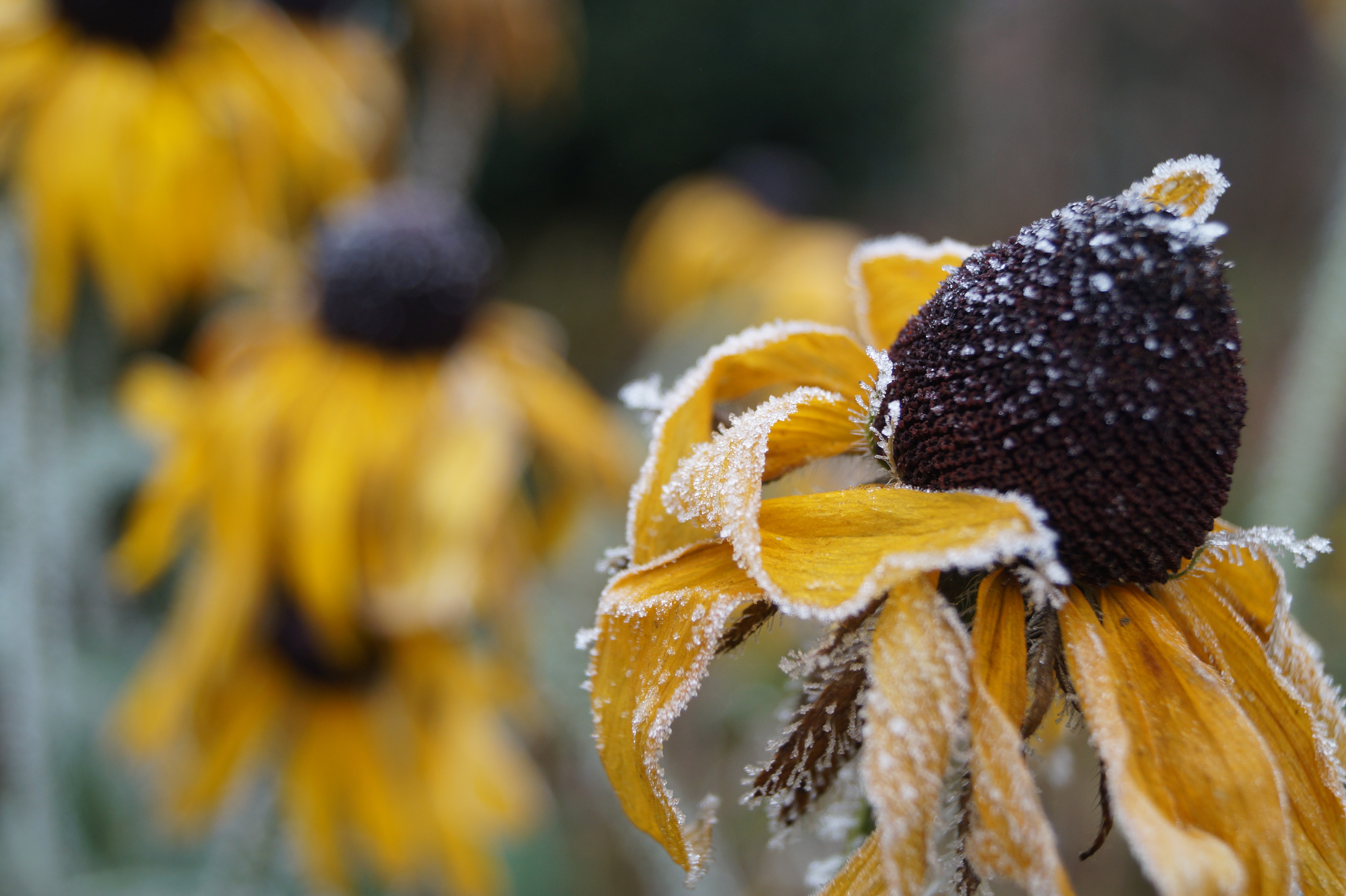While the wildlife in your garden does have the innate knowledge of what it needs to do to protect itself over winter, human interference with nature has affected how the wildlife in your garden goes about doing just that. Lily Harris has written a handy guide to show you how best to support the wildlife in your garden this winter.
For centuries now humans have lived, without giving due consideration to the other species that also inhabit the environment. Because of this carelessness, much of our wildlife is now vulnerable. More recently though many people have realised that it is our responsibility to protect our environment and its crucial biodiversity. It’s actually quite a simple thing to take steps to help support and nurture our environment and in this blog, I will show you seven easy ways you can help to nurture nature in your own garden. It’s crucial that we consider how we can protect our local wildlife when we are tending to our gardens. This is especially true over the winter months, where many creatures need to hibernate, and plants need help to stay strong.
1) New growth for the New Year
Cutting back trees and bushes after the autumn will help keep them healthy and ready to perpetuate in the new year. Remember though, if you’re buying cutting tools, to look for ones which won’t add pollution to your garden. In order to keep ‘reducing the fumes and particulate matter’ in your garden, Mowers Online suggest opting for ‘greener, cordless machines’ powered by batteries which will better protect your wildlife.
2) Create the perfect habitat
Of course, we do still need to cut trees and plants back, but we also need to ensure that we provide places for wildlife to find shelter for hibernation. Cutting back is actually extremely helpful for restoring your garden into a suitable winter habitat for its resident creatures, as it provides valuable cuttings which provide essential shelter and insulation. Fallen leaves are also important for this. By keeping the cuttings and leaves in piles in the ground, you will create perfect hibernation hideaways for many of the creatures living with you. If you fancy making something more decorative, you can even create a ‘bug hotel’ out of what would otherwise have been deemed ‘garden waste’ (there are some beautiful examples of bug hotels on Pinterest). It’s also important to leave pockets of your garden wild over winter, as this provides vital shelter and food for overwintering caterpillars and chrysalis.
3) Beware bonfires
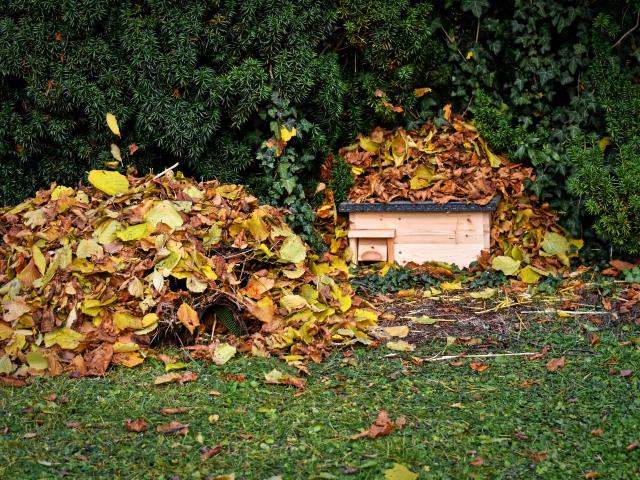
As already described, creatures of all kinds love to burrow into piles of wood cuttings and fallen leaves to stave off the cold during the winter. However, this means that you need to be extremely mindful of where those creatures might be. As well as being careful not to talk over or kick piles of leaves, it is of the utmost importance that you are very careful when lighting bonfires. Bonfire piles look, to hibernating creatures such as hedgehogs, toads and frogs, like a perfect place to while away the time; but this can be deadly for them if people forget to be checked the piles before they light. So, be responsible and never assume that your pile is vacant.
4) Feed the birds
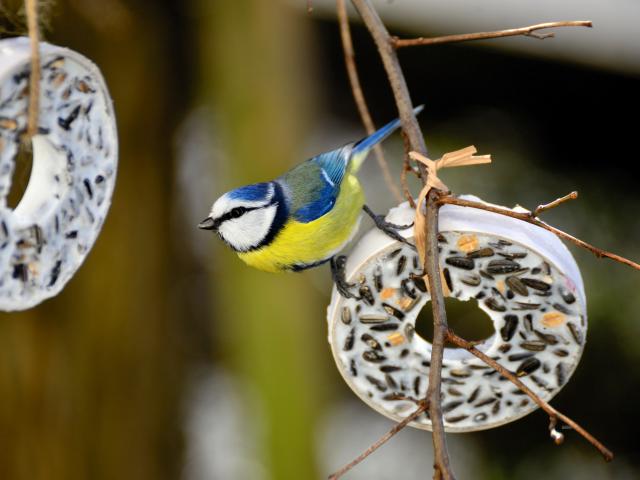
We all know the pleasure of looking out of the window and seeing a little robin hopping about in the garden on a frosty morning. If you want to protect them so that they can keep arriving and thriving, then leave some food out. The Royal Horticultural Society explains that fat, nuts and grain mix are an ideal combination to help birds through the winter. Their website has some very useful tips about how to feed different types of birds during winter, such as the fact that ‘thrushes and blackbirds favour fruit’. Instead of bird feeders for them, the RHS recommend that you ‘scatter over-ripe apples, raisins and song-bird mixes on the ground for them’.
5) Provide fresh water
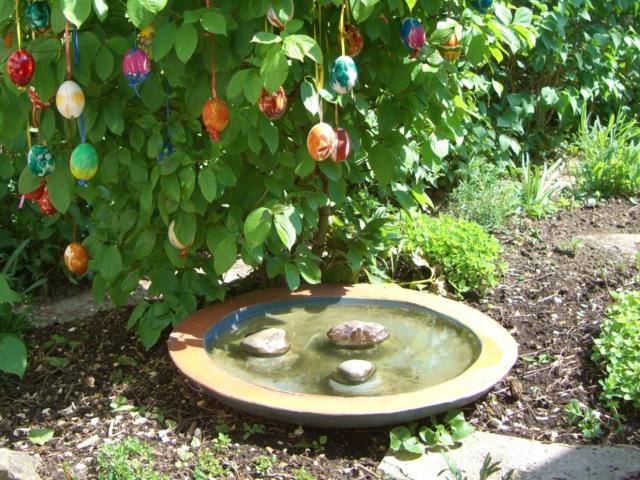
It is important that non-hibernating creatures have access to fresh, drinkable water throughout the winter. Leave out a shallow dish of water on the ground and carefully melt holes in frozen ponds (do not crack ice as this can cause reverberations which may distress or harm aquatic life). The Woodland Trust have some additional helpful ideas, such as ‘floating a small football on the surface to disturb the formation of ice sheets’ and ‘in really cold weather, fill[ing] a metal or ceramic dish with water and set[ting] it on bricks over a tea light candle’.
6) Help confused creatures
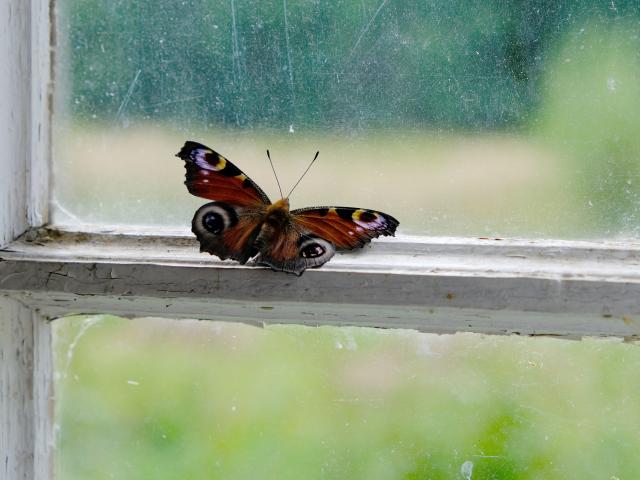
Sadly, with the oscillations in seasonal weather due to our changing climate, some creatures become confused about when to come out of hibernation. Lured out of their incubation too early by a brief warm spell, many insects (including butterflies and bees) end up dying before they have had a chance to pollinate and propagate. This premature awakening can also occur when insects become confused by the warmth of your home. We suggest that, if you spot a butterfly or moth in your home which has been tricked into thinking it’s spring, the best thing to do is ‘rehouse the butterfly into a suitable location’. Placing the butterfly carefully (without touching it with your hand) into a cardboard box with air holes for half an hour will help it to calm down, and you can then transport it to a suitable location.
7) Plant for the future
As you are thinking about protecting your wildlife, it’s good to have long-term goals too. The BBC’s Gardener’s World magazine state that the first and foremost way we should ensure that birds are fed in the winter is by ‘grow[ing] plants that will provide them with food, such as berries and seeds, and other plants that will provide a habitat for insects that they can eat.’ The Gardener’s World website even has a helpful list of plants which are beneficial for birds – a resource that is definitely worth making use of if you’re serious about being responsible and protecting the wildlife in your garden.
References
https://www.mowers-online.co.uk/petrol-lawnmower
https://www.pinterest.co.uk/EarlyYrsCareers/bug-hotels/
https://butterfly-conservation.org/news-and-blog/i-found-a-butterfly-in-my-house-what-should-i-do
https://www.rhs.org.uk/advice/profile?PID=382
https://www.woodlandtrust.org.uk/blog/2018/02/feeding-winter-birds/
https://www.gardenersworld.com/plants/feeding-garden-birds-in-winter/


